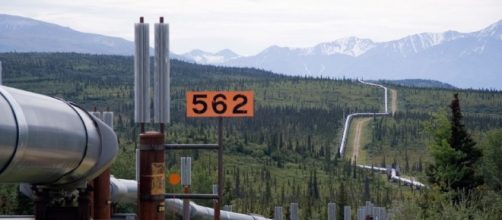U.S. President Donald Trump and his administration have reversed former President Barack Obama’s decision to block the construction of TransCanada’s 1,700-mile pipeline project from shipping crude oil to refineries on the Gulf Coast. The President made the announcement on Friday in the Oval Office at the White House, in the presence of the president of TransCanada Corp., Russ Girling. The Calgary-based company has been fighting for the $8 billion project for a decade.
Removal of a large obstacle
Trump said to Russ Girling, as quoted by the Canadian Press, “You’ve been waiting for a long, long time.” He cited that it was “a great day for American jobs” and a historic moment for energy independence and for North America.
The President also said that the federal government was formulating the final details “as we speak." This green light from Trump’s administration does not guarantee a smooth project, and TransCanada still has to deal with all the necessary permits and resistant protesters. The company has been wrestling with lawsuits and running scientific and political advocacy to get the project going.
Keystone XL would help the economy by creating thousands of temporary construction jobs. It would also provide a boost in annual tax revenue from the surrounding areas of the project that stretch from Canada. The Keystone XL North connects Alberta’s tar sands reserves to the oil hub in Cushing, Oklahoma, and from there connects with the southern leg of the Keystone XL—already completed and pumping oil—carrying the diluted bitumen to Gulf coast markets.
Another pipeline permit was granted by the Canadian administration to Enbridge to cross the US-Canada border for its “Keystone XL Clone” system -- also linking tar sands to the refinery markets in the Gulf Coast.
Final constructions
According to the Council of Canadians, the Keystone XL pipeline would increase greenhouse gas emissions by at least 22 million tons annually. TransCanada promised 13,000 construction jobs, with a majority being indirectly related to other industries, but Trump was aiming for more. Obama rejected the pipeline in 2015 for fear that it would undermine US credibility in climate change negotiations worldwide coming together in a global Paris deal. For the same reason, the State Department based the decision on the Paris deal, saying that Keystone can now proceed, since many other countries have recently agreed to address the issue of climate change.

